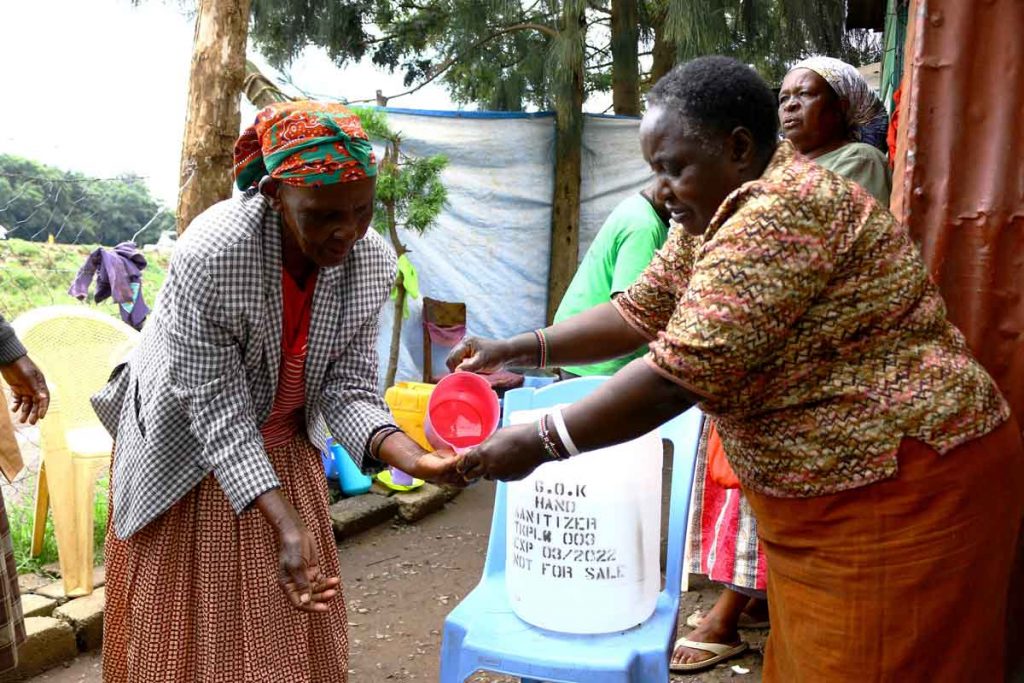Old people are especially vulnerable to Covid-19, the respiratory illness currently crippling the world.
But Africa’s elderly, even if they are a small proportion of the population, are more vulnerable than their developed world counterparts. And they urgently require locally-relevant strategies to protect themselves, says Erastus Maina, global charity HelpAge International’s Kenya programme coordinator. “Elderly people are a national treasure that Covid-19 is particularly a threat to,” he says.
The aged aren’t all that rare in Africa. In 2019, around 400,000 Kenyans were aged 80 and over—the age range in which the fatality rate for Covid-19 rises sevenfold to 15%, according to data based on 44,000 Covid-19 cases in China.
Maina’s organisation is working on ways to protect elderly Kenyans from Covid-19. HelpAge International has come up with international guidelines to help the elderly guard themselves against Covid-19. These guidelines state that elderly people should look after their general health, and keep taking their medications for other conditions, to improve their chances should they contract Covid-19.
But local strategies are needed, Maina points out. Many of the ways in which Kenyans traditionally pay respect to their elders—such as shaking hands, or bowing or curtsying to receive a touch on the forehead or face—are at odds with the social distancing that health agencies promote as the best way to avoid transmission of the new coronavirus that causes Covid-19.
It is vital that elderly Africans avoid infection given the inadequate health infrastructure in many countries on the continent, says Maina. “To witness the overwhelming pressure [Covid-19 has] brought to bear on the health infrastructure in the developed world is disconcerting to say the least,” he says.
He adds that the traditional safety nets that once held societies together—the extended family on which old people used to depend—are in some cases all but gone. It is now common to come across old people living by themselves in rural areas, their children having moved to cities looking for work. While such isolation could on the one hand protect them from infection, it might also leave them helpless should they become sick, Maina argues.
Another challenge in many African communities is that elderly people often care for their grandchildren. This could predispose them to Covid-19 infection, not just from the children who could pick it up from schools and playgroups, but also from the children’s parents who visit from the cities—something that is likely to happen as infection rates rise, explains Maina.
But getting these messages to the elderly is challenging, says Maina. HelpAge International works with partner organisations that care for old people on the ground. One of them is the Kibera Daycare Centre for the Elderly, in the Kibera slum of Nairobi. The centre has a feeding programme, which delivers food every Tuesday to old people living alone. However, since the outbreak of the coronavirus pandemic, the centre’s operations have been severely affected.
“We are used to visiting [the elderly] in their homes to deliver food and keep them company,” says Agnes Kariuki, the centre’s team leader, “however, this is no longer possible.” She says they no longer shake hands with the old people, and their visiting time is limited.
Old people are fast becoming a marginalized group in Africa, says 70-year-old Kinuthia Wamwangi, a HelpAge International Ambassador for older people in Kenya. This is a far cry from the revered and cherished status they once enjoyed, he says. “We are discriminated against and cannot find jobs, so it is very difficult to make a living,” he says and adds that antipathy against old people “is turning into hatred, something which has been exacerbated by the Covid-19 pandemic”.
Maina says that one positive thing that might come out of the pandemic would be if more Africans governments wake up to the need for designing ways to look after the continent’s old folks.
Photo: Geoffrey Kamadi
